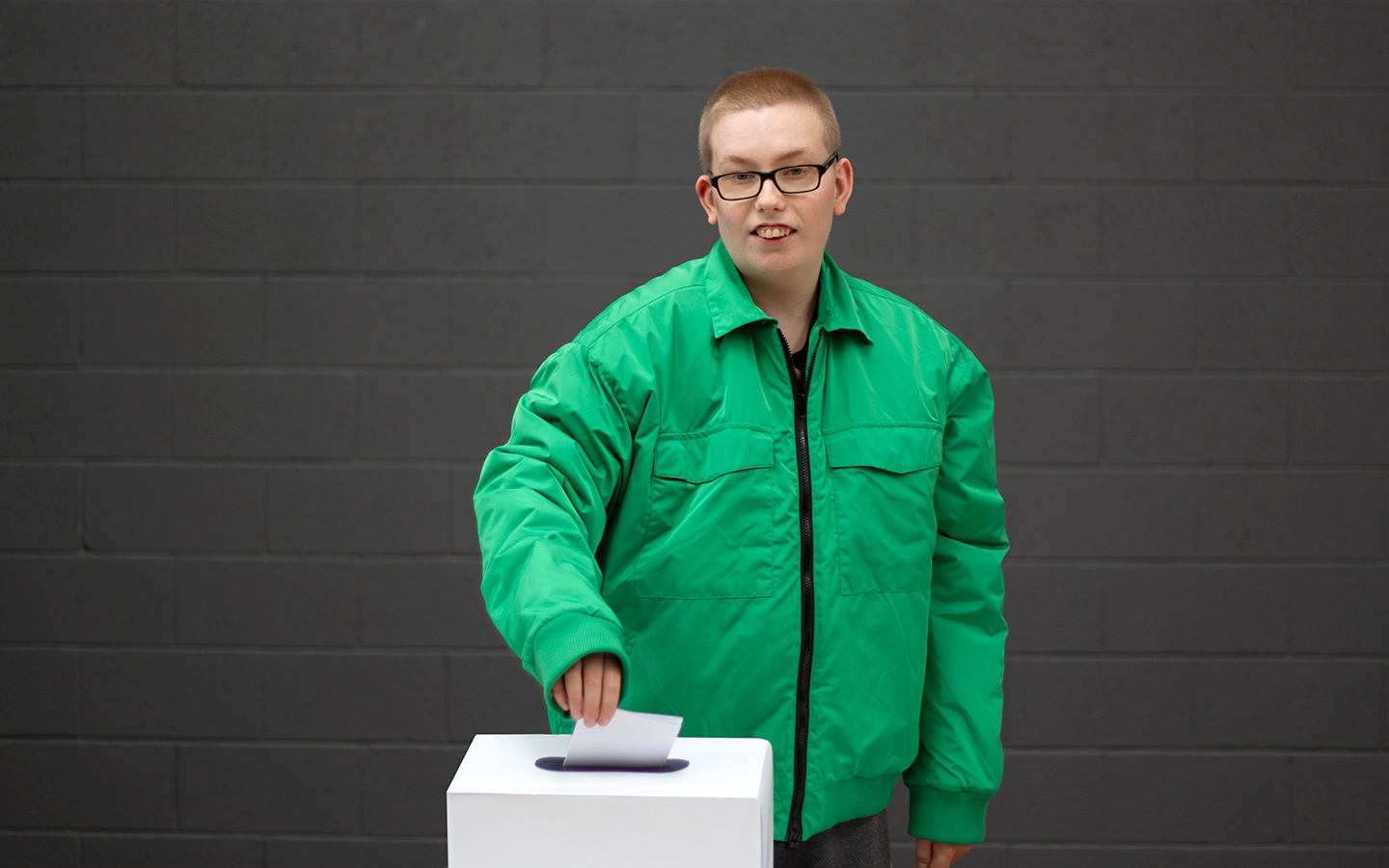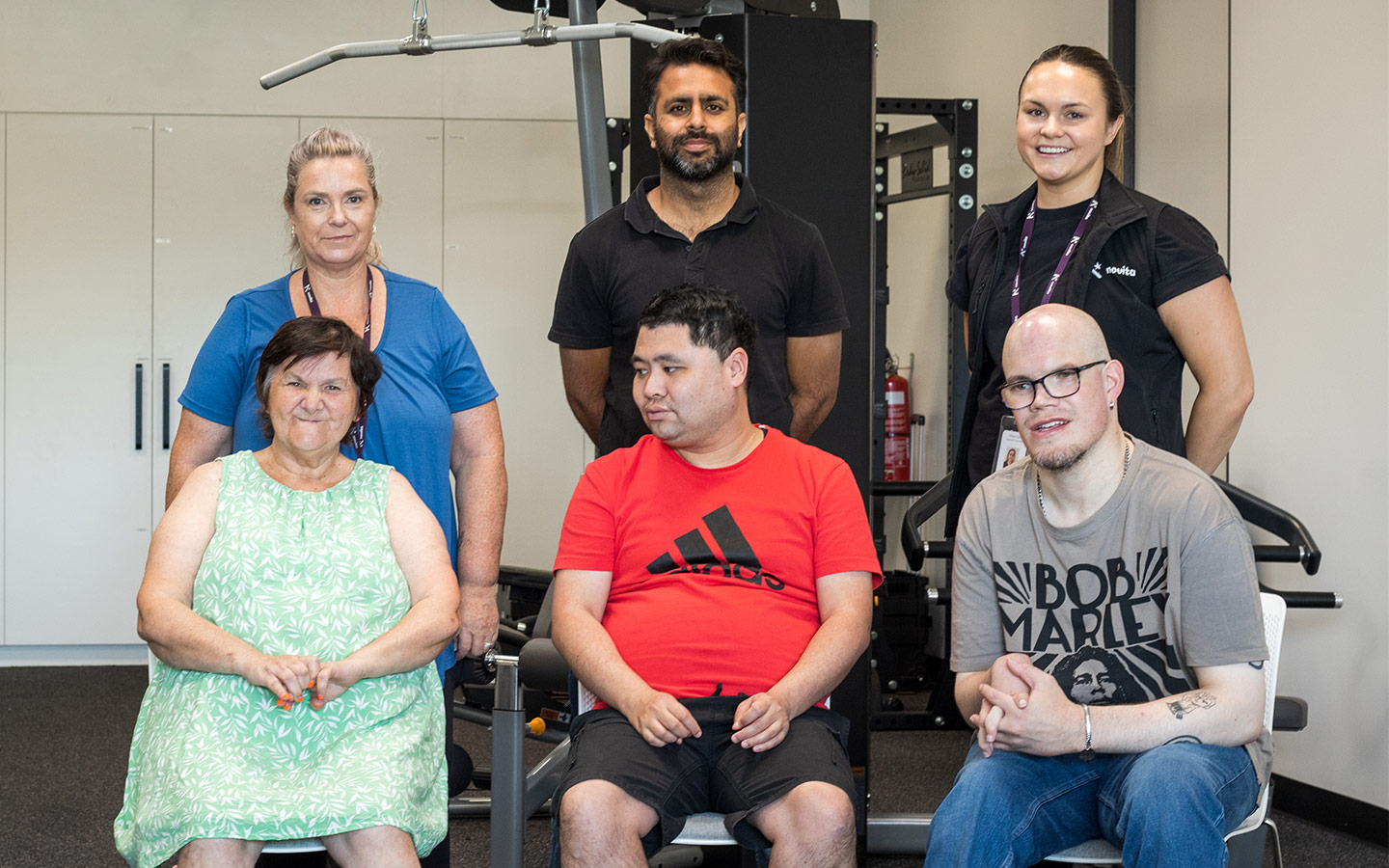Helpful Information
What types of sport are available for my child in South Australia?
access_time25min read
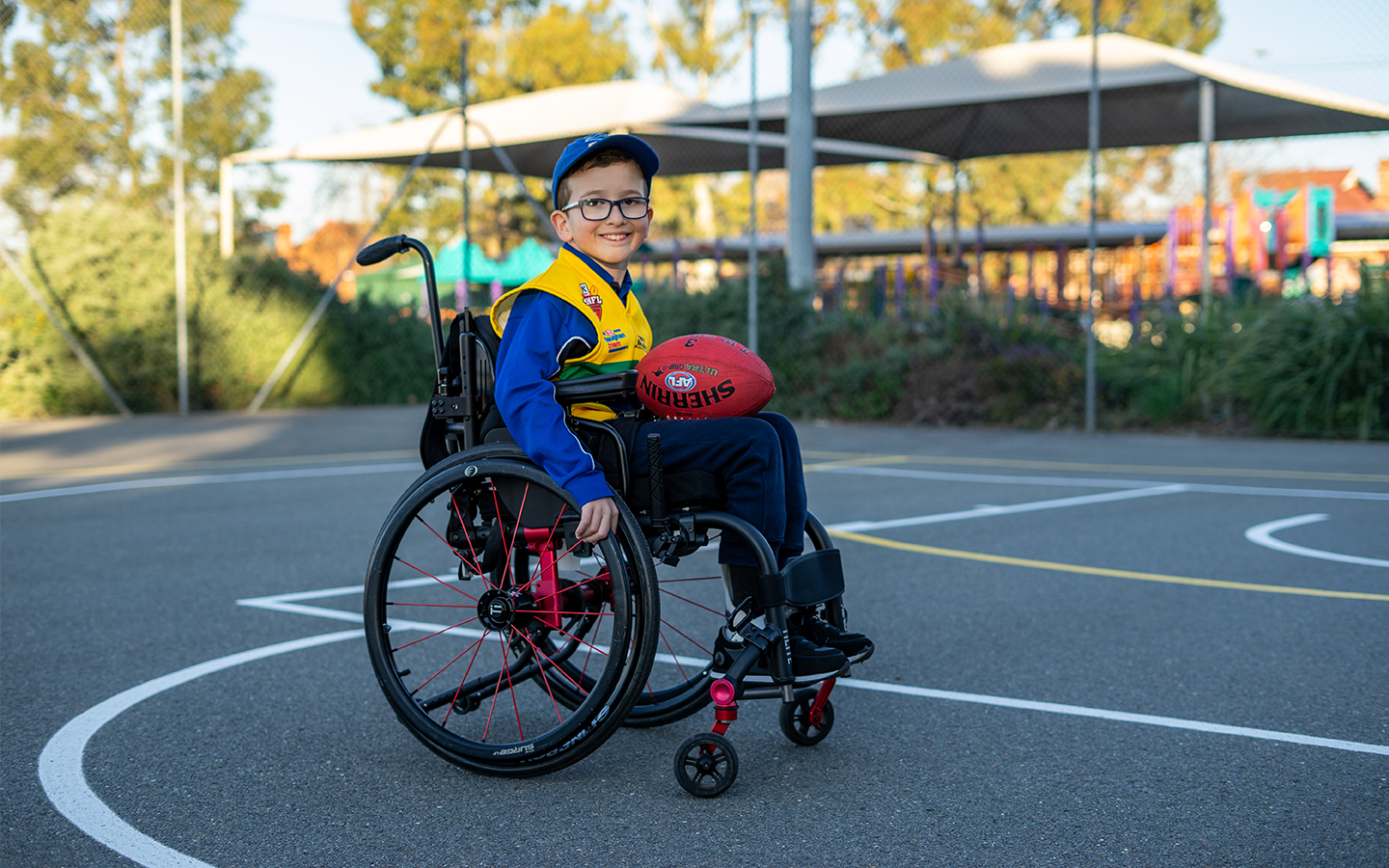
Playing sport can be great for all children – it allows them to stay healthy, make friends, and feel good about themselves for giving it their best go!
However, for parents of children living with disability, it might feel tricky to find the right sport. The good news is that accessibility in sport has come a long way.
There are a range of adaptive and accessible sports that have been modified to accommodate children living with disability. We’ve put together this guide to assist you in navigating adaptive sport for your child.
What is adaptive and accessible sport?
Many sports today have adapted rules and equipment to accommodate individuals living with disability to meet their requirements. Adaptative sport is quite varied, with some requiring specialist equipment and others needing nothing at all. A sport may be changed by adjusting rules or using different equipment, such as modifying basketball by playing wheelchair basketball in wheelchairs.
Adaptive sport can be competitive or recreational and are modified for people living with disability, considering their unique needs and abilities. This allows sport to be more inclusive, safe, and enjoyable, resulting in more sporting options available for your child.
Assess Your Child's Interests and Abilities
Before diving into the world of adaptive sport, it’s essential to understand your child’s unique needs, interests, and abilities. Start by having an open conversation with your child about their preferences and goals.
It’s also important to consider your child’s disability and the sport that is going to be most practical for them. Consider factors such as their physical limitations, cognitive abilities, and social preferences when selecting a sport. For example, if your child has a mobility impairment, wheelchair sport will be suitable for them.
Consulting with healthcare professionals or therapists can also provide valuable insights into suitable sporting activities for your child.
Let’s look at some types of adaptive sport your child may be interested in!
Team Sport
Playing team sport allow your child to make new friends, develop their communication, teamwork, and leadership skills. Teamwork is a key skill that your child will use in school projects and future social and work settings.
Some of the most popular accessible types of team sport include – Basketball, Cricket, Aussie Rules Football, and Netball.
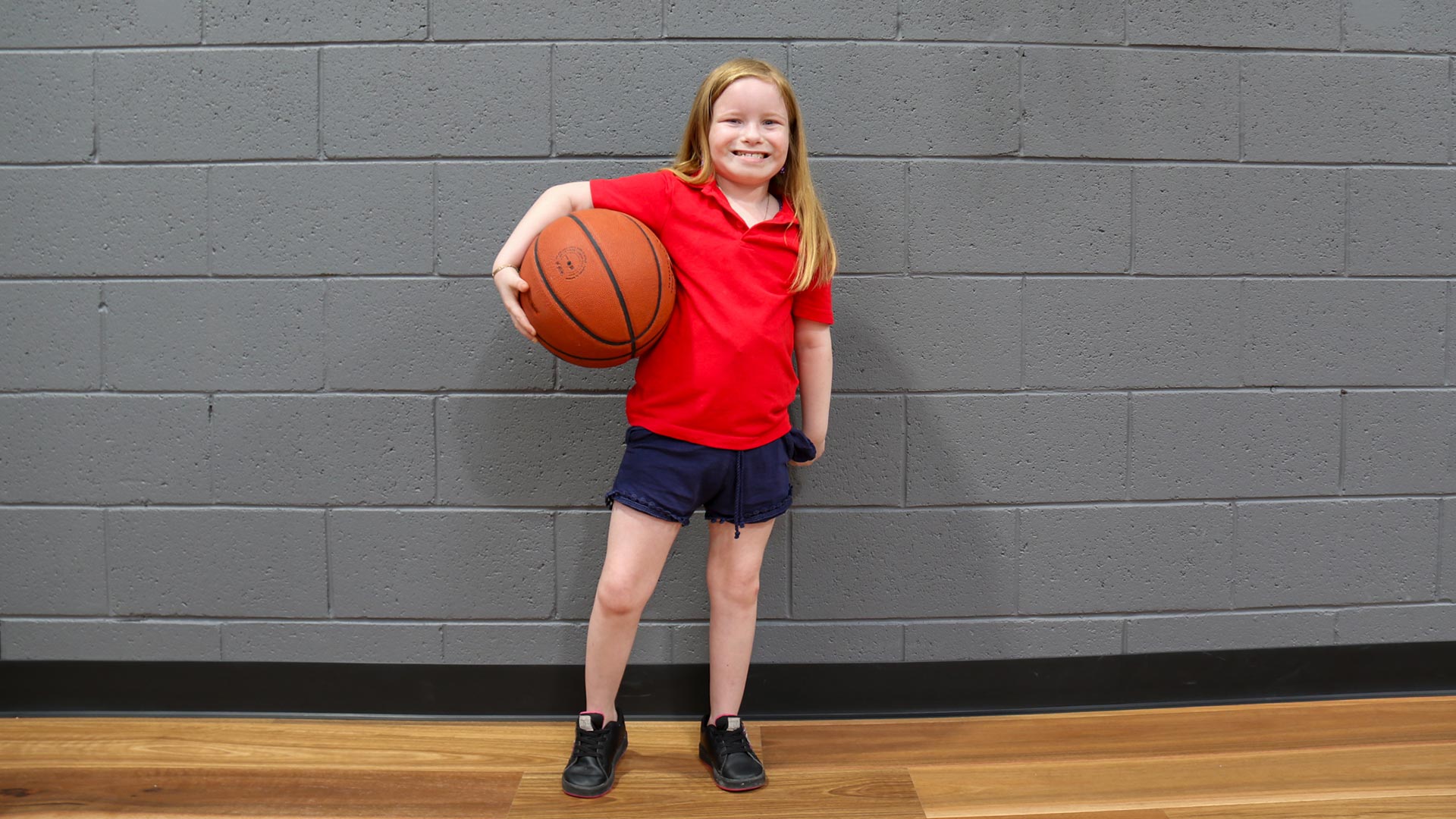
1. Basketball
Accessible Basketball is available in many different forms. What’s accessible to one child is going to look different to another. Accessible Basketball is accommodating for those in wheelchairs and the games are inclusive with trained coaches. Basketball SA run Wheelchair Basketball and Inclusive Basketball leagues which may be suitable for your child.
- Wheelchair Basketball
Wheelchair Basketball is a fast-paced, competitive sport played in wheelchairs, allowing people with various disabilities to participate. It’s designed for all children, especially those with physical disability such as cerebral palsy.
Anyone can participate and your child does not have to be in a wheelchair to play the sport. Each division consists of players of all ages, genders and abilities. Regardless of your child’s skill level, Wheelchair Basketball is available for those with no experience in the sport, through to those more experienced.
Find out more: https://basketballsa.com.au/wheelchair-basketball/
- Inclusive Basketball
If your child lives with an intellectual disability or physical limitation, Inclusive Basketball is a basketball competition that provides playing and training opportunities.
If your child has some experience playing or is looking to compete, there are opportunities and pathways for skilled players to compete at the Local District Level and at a national level.
Find out more: https://basketballsa.com.au/inclusive-basketball-program/

2. Cricket
Cricket is a popular team sport for all Australians, including those living with disability. If your child wants to play cricket, they can join Cricket Blast or All Abilities Cricket, run by Play Cricket in South Australia.
- Cricket Blast
Cricket Blast offer inclusive junior programs for children of all abilities, between the ages of 5-16 to learn skill development, drills, and game-based activities such as catching, throwing, batting, bowling, and teamwork.
Activities use softer balls of different sizes, as well as blind cricket balls, so your child can participate at their own pace. This provides your child with the opportunity to transition into junior cricket teams in the future.
Find out more: https://play.cricket.com.au/program-finder
- All Abilities Cricket
All Abilities Cricket allows children to play cricket in a fun and inclusive environment. Whether your child has never picked up a bat or ball before, or has some backyard experience, cricket can be modified to cater for your child.
Find out more: https://play.cricket.com.au/play/for-all-abilities
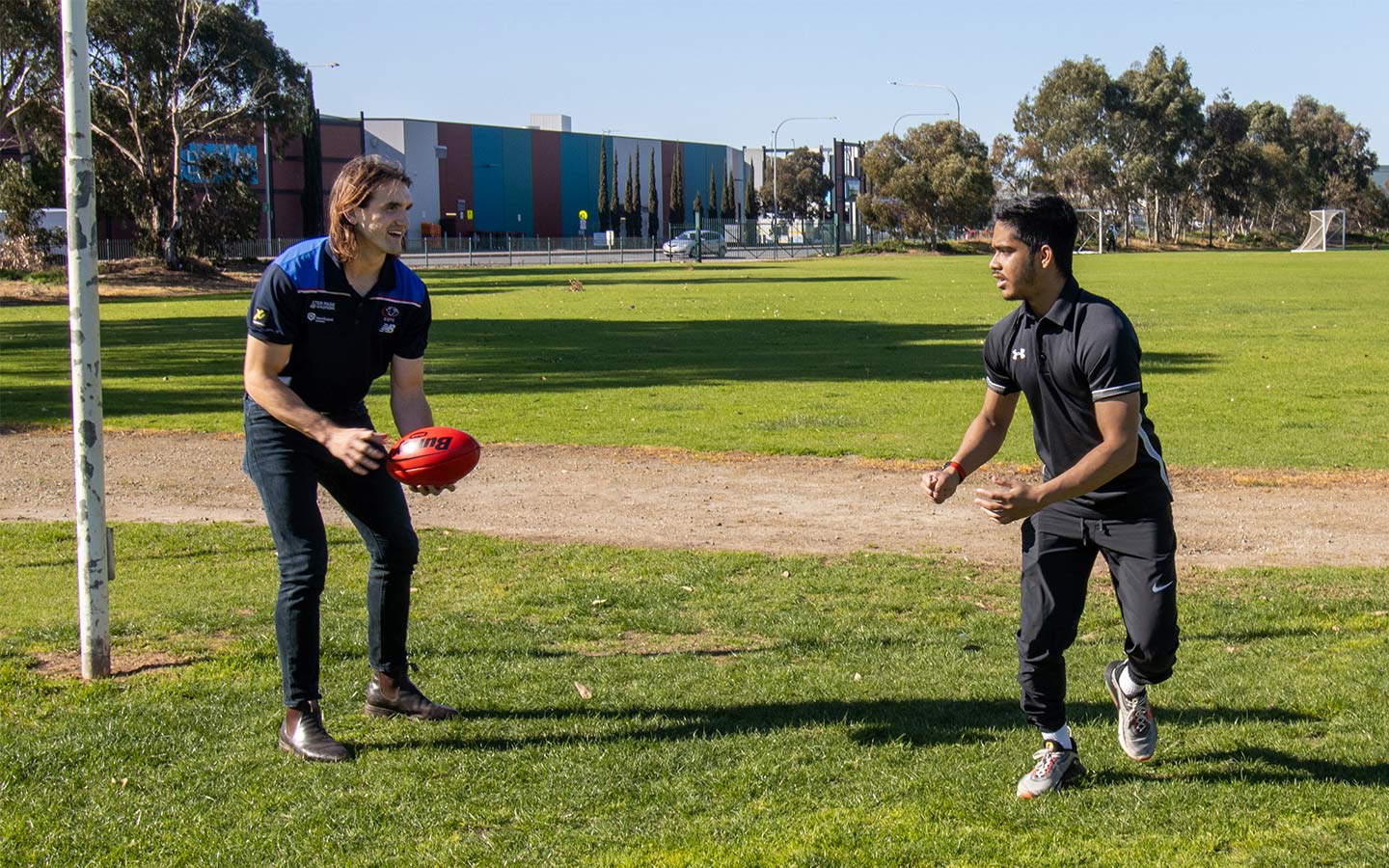
3. Aussie Rules Football
Aussie Rules Football is a fast-paced, skillful, and tactical sport and has different programs to cater for people with different abilities.
- Aussie Rules football Wheelchair
Aussie Rules Football Wheelchair is a modified version of the game that allows people to play competitively, regardless of whether they have a physical disability. Played in wheelchairs, the sport has been adapted by handballing the ball, instead of kicking it, and using an underarm throw, instead of a handball. The sport is also played on a basketball court, rather than a grass oval.
Find out more: https://sanfl.com.au/wheelchairfootball
- Auskick
Auskick is an introduction to Aussie Rules Football, with game-based activities that children love, and learning is disguised as playing. Your child doesn’t need Aussie Rules experience and children can start Auskick as soon as they turn 5. To ensure Auskick is played fairly, players are grouped based on their age, with the option for all girls’ groups.
Find out more: https://play.afl/play/auskick
SANFL Wheelchair Auskick
SANFL run a Wheelchair Auskick program to give children the chance to learn the rules and basic skills of Wheelchair Football in a positive and supportive environment. The program will run in Term 2 on Saturdays from 10:00am – 11:00am at the NovitaTech retail store in Hindmarsh.
Come & try session
Come and try the free session on April 20th!
Wheelchair Auskick Centre Details
Address: NovitaTech, 31 Manton Street, Hindmarsh
Ages: 5-14 years old
Wheelchairs can be provided.
Register now
4. Netball
Netball SA encourages the participation of all children, including those living with disability. They offer opportunities for players who require no adaptation, some adaptation and exclusive to those living with disability. Netball SA run NetSetGo and Junior Comp, providing children with the opportunity to play for a club.
- NetSetGO
NetSetGO is for children aged 5-10, offering them the chance to learn the basics of netball. The program supports children to build confidence, get active, and make friends in a safe and inclusive environment.
Find out more: https://netball.com.au/netsetgo
- Junior Comp
Junior Comp is designed for children aged 11-17 years, offering their first experience in competitive netball. This is for children who want to take the sport a bit more seriously than NetSetGo, want to play a full season, and work on sharpening their passing skills.
Find out more: https://netball.com.au/junior-senior-netball
Individual sport
In contrast to team sport, individual sports play an important role in developing your child’s independence, skill development, and self-confidence. If your child prefers to be in their own company, an individual sport might be a good option.
Some of the most popular accessible individual sports include – Swimming, Athletics, and Tennis.

5. Swimming
Swimming is one of the most well-known sports among people living with a physical disability, vision impairment, or intellectual disability. It is a low-impact, adaptive sport that can improve their cardiovascular fitness, muscle strength, coordination, and endurance.
Unlike other adaptive sport, swimming is a life skill typically taught to ensure water safety, but it is also a competitive sport too.
- Swimming SA
Swimming SA offers swimming opportunities for children living with disability, creating a welcoming community that promotes participation and connection for all.
Find out more: https://sa.swimming.org.au/get-swimming/join-club

6. Athletics
Athletics is an individual competitive sport offering a variety of specific events, on both the track and in the field, such as running, jumping and throwing. Athletics is one of the fastest evolving sports, open athletes of all abilities and ages.
Little Athletics SA is a modified athletics program for children of all abilities aged 3 – 17 years. Little Athletics SA offer 50 clubs across metropolitan and regional South Australia.
There are two divisions for children:
- Tiny Tots – ages 3-4, participate in a modified program designed to teach basic movements like running, jumping, and throwing in a fun way. The program aims to improve the physical, social, emotional, and cognitive development of children through a play-based approach that is engaging and stimulating
- Ages 5-17 – are grouped into their age brackets (Under 6, Under 12, etc.) There is no standards or requirements athletes must meet to be able to participate in Little Athletics, it is inclusive to all children of all abilities. Athletes in this age group will participate weekly in different running, jumping, throwing and walking events.
Find out more: https://salaa.org.au/
7. Tennis
Accessible Tennis supports people living with disability, inclusive of those who have a hearing impairment, vision impairment, intellectual disability or physical disability. Accessible Tennis is held at venues that are easy for those with disability to get to, making the sport easy to participate in.
- Wheelchair Tennis
Tennis SA run Wheelchair Tennis programs for individuals with a wide range of disabilities, from mobility to intellectual and vision impairments. For those with vision impairments, equipment can be modified such as tactile lines, smaller racquets, balls with a bell, and a small court to ensure participants can join in the game.
Find out more: https://www.tennis.com.au/sa/players/diversity-and-inclusion/disability-tennis/wheelchair-tennis
Sport offers invaluable benefits for children living with disability, including improving their physical fitness, social skills, and personal development.
When selecting a sport with your child, remember to involve them in the decision-making process, considering their interests, abilities, and whether the sport accommodates their abilities.
Consider whether your child is better suited to a mainstream sporting organisation, or whether they require an adaptive sport. Think about what activities they enjoy and excel in, and their physical and cognitive strengths. Whether they prefer team sport or individual ones, there’s likely an adaptive sport out there that they’ll enjoy.
As a parent, you can support your child to get involved in sports by initiating conversations and taking the next steps towards contacting sporting organisations of interest. With the right resources and support, your child can thrive and succeed in the world of adaptive sport.
While our focus in this article has been South Australia, similar adaptive sport programs likely exist across other states too. If you reside outside of SA, or even Australia, don’t fret! You can still partake in these empowering activities by reaching out to local clubs and organisations in your area directly. They’ll be happy to assist you join in on the fun!
Do you need extra support getting your child started with a sport?
Novita’s ConnectABILITY program provides an individualised information service on suitable recreation activities for your child. More information on this service and how it can assist can be found on Novita’s website: https://www.novita.org.au/community_inclusion/connectability/
